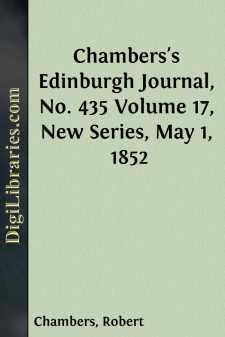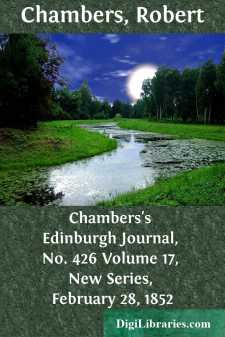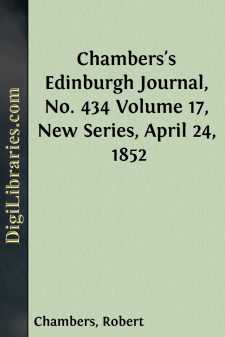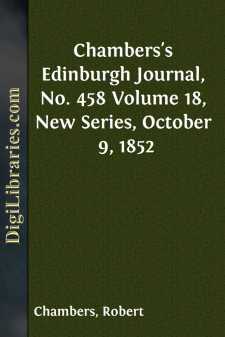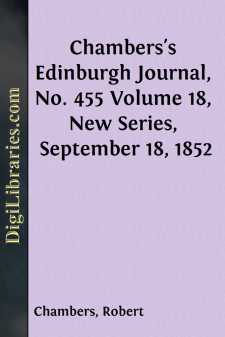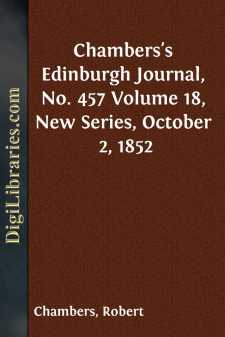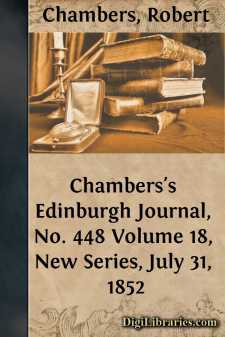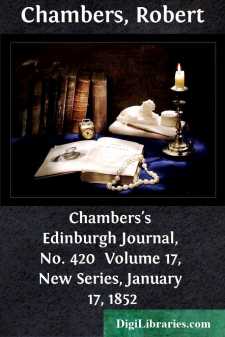Categories
- Antiques & Collectibles 13
- Architecture 36
- Art 48
- Bibles 22
- Biography & Autobiography 813
- Body, Mind & Spirit 142
- Business & Economics 28
- Children's Books 17
- Children's Fiction 14
- Computers 4
- Cooking 94
- Crafts & Hobbies 4
- Drama 346
- Education 46
- Family & Relationships 57
- Fiction 11829
- Games 19
- Gardening 17
- Health & Fitness 34
- History 1377
- House & Home 1
- Humor 147
- Juvenile Fiction 1873
- Juvenile Nonfiction 202
- Language Arts & Disciplines 88
- Law 16
- Literary Collections 686
- Literary Criticism 179
- Mathematics 13
- Medical 41
- Music 40
- Nature 179
- Non-Classifiable 1768
- Performing Arts 7
- Periodicals 1453
- Philosophy 64
- Photography 2
- Poetry 896
- Political Science 203
- Psychology 42
- Reference 154
- Religion 513
- Science 126
- Self-Help 84
- Social Science 81
- Sports & Recreation 34
- Study Aids 3
- Technology & Engineering 59
- Transportation 23
- Travel 463
- True Crime 29
Robert Chambers
Robert Chambers (1865-1933) was an American author best known for his works in the horror and weird fiction genres, particularly his influential collection "The King in Yellow" (1895). Before transitioning to horror and supernatural tales, Chambers initially achieved success with historical romances and society novels. His blend of the macabre with a fin-de-siècle aesthetic has left a lasting impact on genre literature, influencing later writers such as H.P. Lovecraft.
Author's Books:
Sort by:
by:
Robert Chambers
THE MUSICAL SEASON. 'The English are not a musical people.' The dictum long stood unquestioned, and, in general estimation, unquestionable. All the world had agreed upon it. There could be no two opinions: we had no national airs; no national taste; no national appreciation of sweet sounds; musically, we were blocks! At length, however, the creed began to be called in question—were we so...
more...
by:
Robert Chambers
FORCED BENEFITS. The maxim, that men may safely be left to seek their own interest, and are sure to find it, appears to require some slight qualification, for nothing can be more certain, than that men are often the better of things which have been forced upon them. Those who advocate the idea in its rigour, forget that there are such things as ignorance and prejudice in the world, and that most men...
more...
by:
Robert Chambers
TIME'S REVIEW OF CHARACTER. ROBESPIERRE. Some characters are a puzzle to history, and none is more so than that of Robespierre. According to popular belief, this personage was a blood-thirsty monster, a vulgar tyrant, who committed the most unheard-of enormities, with the basely selfish object of raising himself to supreme power—of becoming the Cromwell of the Revolution. Considering that...
more...
by:
Robert Chambers
PUFF AND PUSH. It is said that everything is to be had in London. There is truth enough in the observation; indeed, rather too much. The conviction that everything is to be had, whether you are in want of it or not, is forced upon you with a persistence that becomes oppressive; and you find that, owing to everything being so abundantly plentiful, there is one thing which is not to be had, do what...
more...
by:
Robert Chambers
I have been all my life a sort of amphibious animal, having, like many an old Roman, learned to swim long before I had learned to read. The bounding backs of the billows were my only rocking-horse when I was a child, and dearly I loved to ride them when a fresh breeze was blowing. I rarely tired in the water, where I often amused myself for hours together. I grew up with such a liking for the exercise,...
more...
by:
Robert Chambers
A GLANCE AT CONTINENTAL RAILWAYS. When lately making a pretty extensive continental excursion, we were in no small degree gratified with the progress made in the construction and operation of railways. These railways, from all that could be seen, were doing much to improve the countries traversed, and extend a knowledge of English comforts; for it must always be borne in mind that the railway...
more...
by:
Robert Chambers
THE LOST AGES. My friends, have you read Elia? If so, follow me, walking in the shadow of his mild presence, while I recount to you my vision of the Lost Ages. I am neither single nor unblessed with offspring, yet, like Charles Lamb, I have had my 'dream-children.' Years have flown over me since I stood a bride at the altar. My eyes are dim and failing, and my hairs are silver-white. My...
more...
by:
Robert Chambers
It is wonderfully exciting to read the adventures of a shipwrecked mariner; to find him cast away on a desert island, destitute of everything that before seemed necessary to his very existence; to see him settling himself down in a strange and untried form of life, substituting one thing for another, doing altogether without some other thing, turning constantly from expedient to expedient, bending to...
more...
by:
Robert Chambers
BOOK-WORSHIP. A book belongs in a peculiar manner to the age and nation that produce it. It is an emanation of the thought of the time; and if it survive to an after-time, it remains as a landmark of the progress of the imagination or the intellect. Some books do even more than this: they press forward to the future age, and make appeals to its maturer genius; but in so doing they still belong to...
more...
by:
Robert Chambers
HOW IS THE WORLD USING YOU? This is a very common question, usually put and answered with more or less levity. We seldom hear of any one answering very favourably as to the usage he experiences from the world. More generally, the questioned seems to feel that his treatment is not, and never has been, quite what it ought to be. It has sometimes occurred to me, that a great oversight is committed in...
more...



